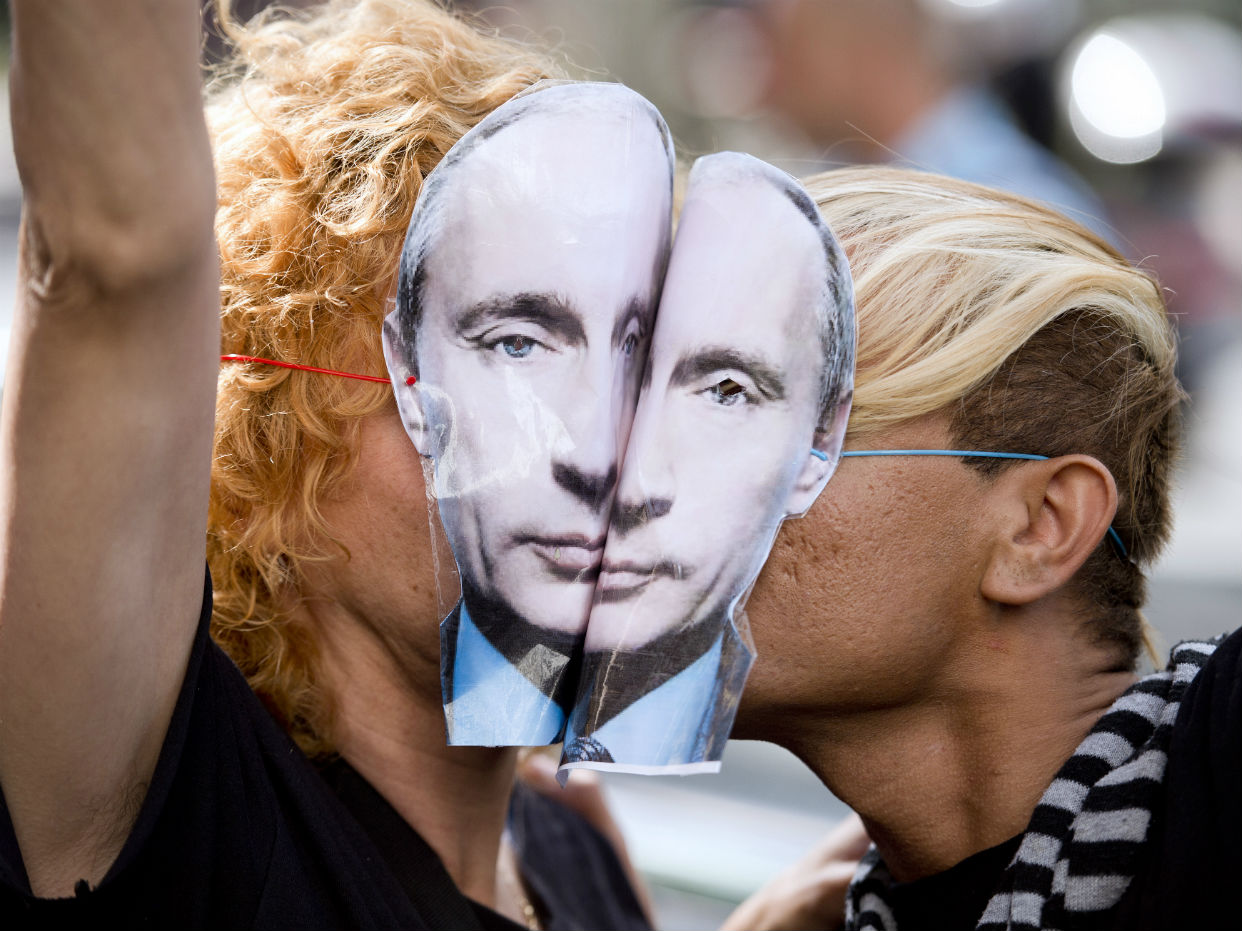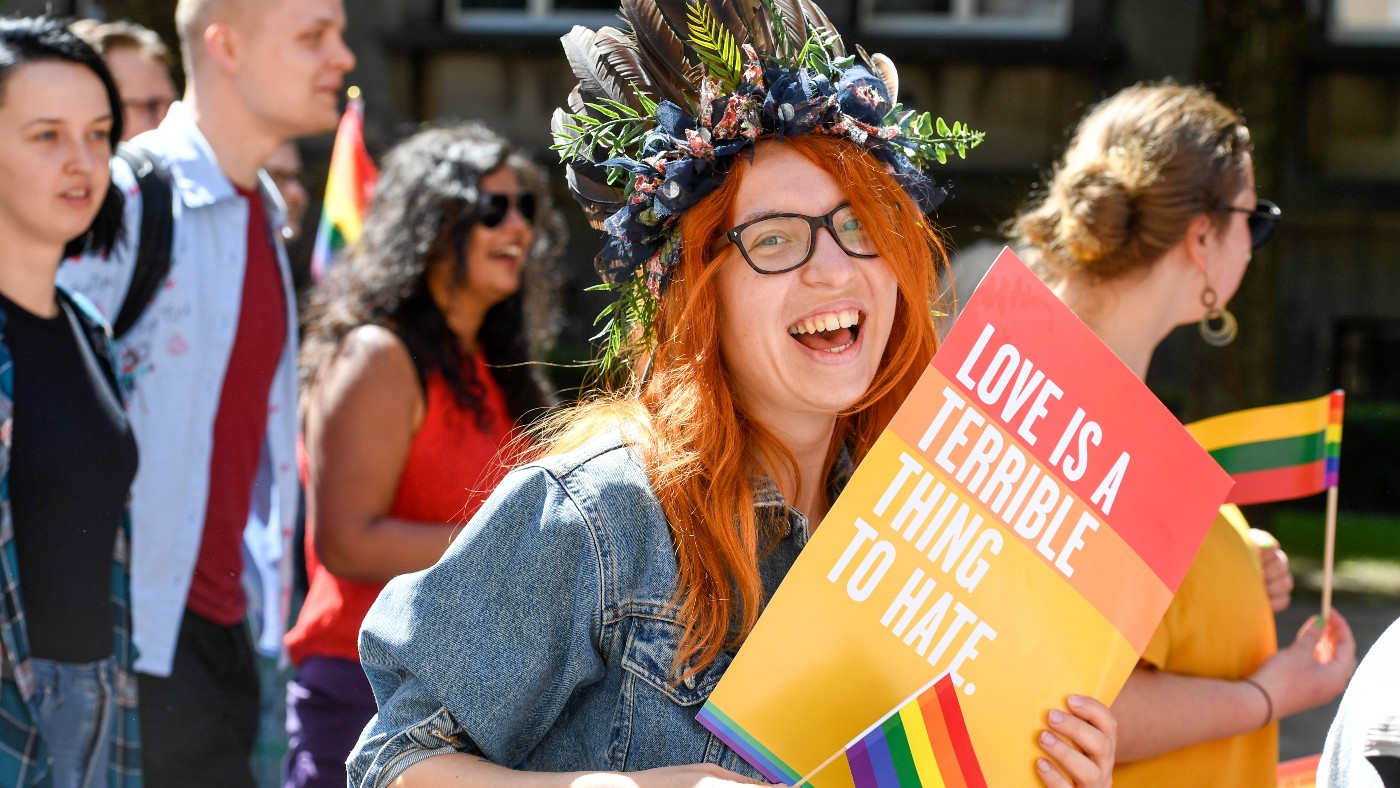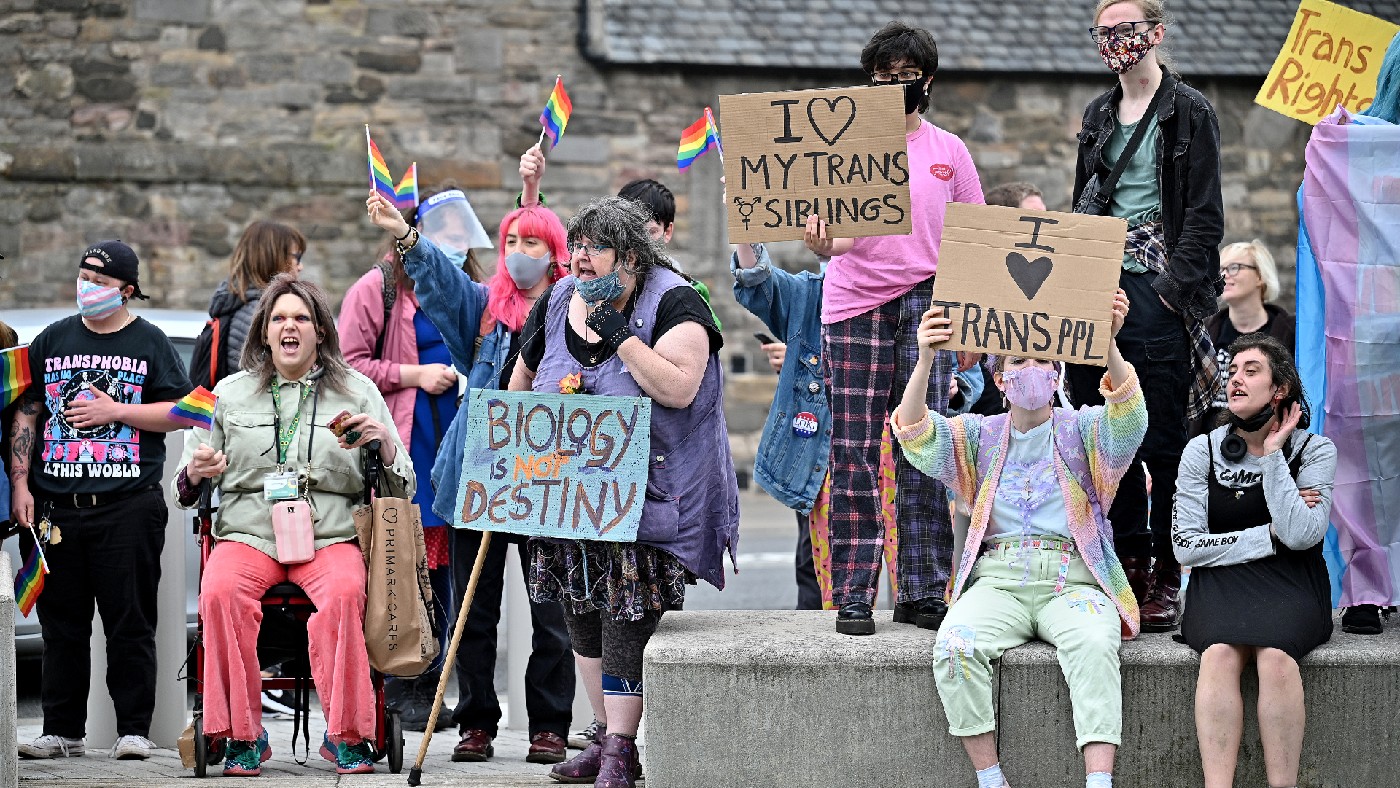Russia to debate banning all public displays of affection between gay people
Proposed law would mean same-sex couples face two weeks in jail for holding hands

A free daily email with the biggest news stories of the day – and the best features from TheWeek.com
You are now subscribed
Your newsletter sign-up was successful
Russia is voting this week whether to ban all public displays of affection between people of the same sex.
If passed, the legislation would mean gay couples who kiss or even hold hands in public could face a two-week jail term.
The move is the latest assault on LGBT rights in Russia. In 2013, the country banned "gay propaganda", in effect prohibiting any public speeches, writing or art which equated homosexual relationships to straight ones.
The Week
Escape your echo chamber. Get the facts behind the news, plus analysis from multiple perspectives.

Sign up for The Week's Free Newsletters
From our morning news briefing to a weekly Good News Newsletter, get the best of The Week delivered directly to your inbox.
From our morning news briefing to a weekly Good News Newsletter, get the best of The Week delivered directly to your inbox.
"Homosexuality is a huge threat to every normal person, which can affect children or grandchildren," said Ivan Nikitchuk, the Communist party MP who drafted the bill.
However, speaking to a Russian radio station over the weekend, he said the ban would not apply to women because he believed "women are more reasonable".
Despite claiming that he condemns homophobia, Russian President Vladimir Putin has sought to crackdown on what he calls "non-traditional sexual relations", which he says are a corrupting influence on Russia's morality and society.
Human Rights Watch, which says LGBT activists in Russia have been targeted by vigilante groups who act "with impunity", claims the new bill would put the president in an "uncomfortable position".
A free daily email with the biggest news stories of the day – and the best features from TheWeek.com
Activists had hoped the legislation would disappear from the agenda when it got to the first reading stage, as has happened with similar bills.
"When this draft bill was initiated, it was so incredibly absurd that we were hoping it was going to be one of those initiatives that didn’t get any attention," Polina Andrianova, of the St Petersburg LGBT rights organisation Coming Out, told BuzzFeed News. “But the fact that it’s scheduled for the first reading is a pretty bad sign.”
She also warned that warned that direct protests against the bill could make its passage into law more likely.
"It will give more of a green light to people who are willing to discriminate [and] to beat people up," she said.
-
 How the FCC’s ‘equal time’ rule works
How the FCC’s ‘equal time’ rule worksIn the Spotlight The law is at the heart of the Colbert-CBS conflict
-
 What is the endgame in the DHS shutdown?
What is the endgame in the DHS shutdown?Today’s Big Question Democrats want to rein in ICE’s immigration crackdown
-
 ‘Poor time management isn’t just an inconvenience’
‘Poor time management isn’t just an inconvenience’Instant Opinion Opinion, comment and editorials of the day
-
 Would North Korean weapons tilt the war Russia’s way?
Would North Korean weapons tilt the war Russia’s way?Today's Big Question Putin wants to boost ‘depleted stocks’ but Pyongyang’s arms may be in poor condition
-
 Nobody seems surprised Wagner's Prigozhin died under suspicious circumstances
Nobody seems surprised Wagner's Prigozhin died under suspicious circumstancesSpeed Read
-
 The power of Estonia’s same-sex marriage law
The power of Estonia’s same-sex marriage lawfeature LGBTQ people hope the country will set an example for other European nations
-
 Putin's grip on power apparently damaged after Wagner mutiny
Putin's grip on power apparently damaged after Wagner mutinySpeed Read
-
 Is Russia a Chinese 'client state'?
Is Russia a Chinese 'client state'?Today's Big Question Reading between the lines of Xi and Putin's Moscow summit
-
 The Week Unwrapped: Chinese chips, the Pope in Africa and podcasting
The Week Unwrapped: Chinese chips, the Pope in Africa and podcastingpodcast Is China losing the microchip war? What is the Vatican doing in South Sudan? And has the podcast tide turned?
-
 Trans prisoners: a ‘conflict of rights’?
Trans prisoners: a ‘conflict of rights’?Talking Point Case of where to house trans woman convicted of rape causes uproar in Scotland
-
 Putin, Lukashenko meet as Ukraine fears Moscow could launch offensive from Belarus
Putin, Lukashenko meet as Ukraine fears Moscow could launch offensive from BelarusSpeed Read